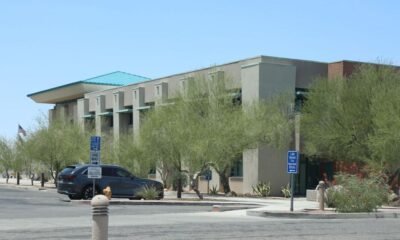arizona
Az Sees $660 Million Budget Windfall Thanks to Surge in October Income Tax Collections

Arizona’s state tax collections surged in October, exceeding forecasts by over 25% compared to the previous year. This impressive growth has elevated the budget surplus to $660 million, just ahead of lawmakers’ return to the Capitol to craft the 2026 spending plan.
During the first four months of the 2025 fiscal year, state revenues exceeded projections by $235 million, in addition to a $425 million surplus recorded at the end of the previous fiscal year on June 30. In their monthly financial review, legislative budget analysts highlighted that October’s revenues surpassed forecasts by $128 million, primarily driven by robust individual income tax collections, which contributed $74 million.
The increase in income tax revenue is largely attributed to heightened tax withholdings, compounded by a notable 34% decrease in refund payments from the previous year. Corporate income tax revenues also surpassed expectations, achieving record levels. Analysts from the Joint Legislative Budget Committee reported that the state collected significantly more than anticipated, exceeding forecasts by $72 million.
Sales tax collections mirrored this positive trend, outpacing projections by $12 million and growing by 5% year-over-year. For the fiscal year thus far, sales tax revenues are up 4% compared to the same period in 2023. Much of this growth can be linked to a rebound in contracting sales taxes, which surged nearly 13% in October compared to last year. However, not all sectors showed similar growth; tax collections from bars and restaurants rose by only 1.8% in October and just 1% over the first four months of the fiscal year, the weakest performance since the peak of pandemic restrictions in 2020.
Looking ahead, budget analysts foresee significant costs on the horizon that lawmakers will need to address this year. These include $183 million dedicated to school building repairs and an additional $140 million earmarked for state employee health insurance.
Compounding these concerns is the impending expiration of Proposition 123 in 2025. This proposition, approved by voters in 2014 to resolve a lawsuit against the state over inadequate K-12 funding increases, has been a crucial source of supplemental funding from the state land trust. If lawmakers and Governor Katie Hobbs do not devise a solution to extend these payments, around $300 million annually will need to be sourced from the state’s general operating budget.


















